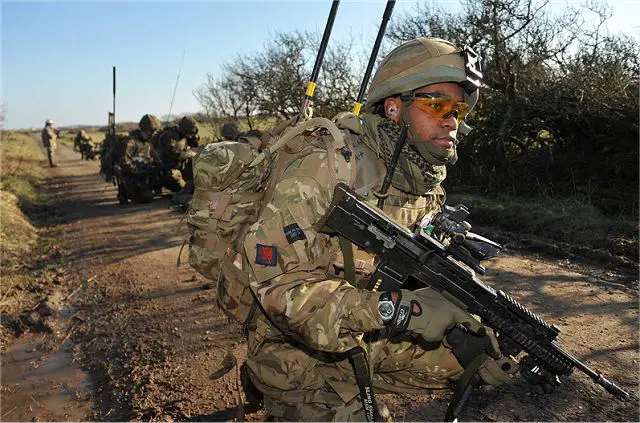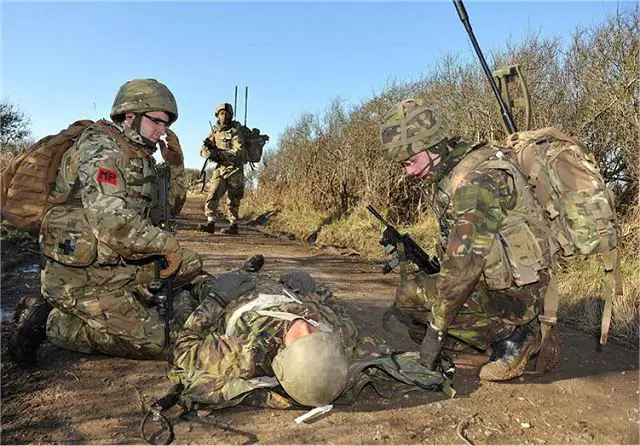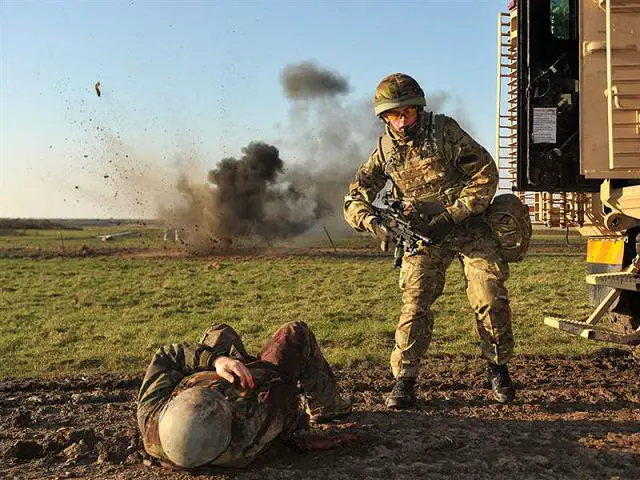1st Battalion Royal Welsh British army soldiers prepare for Afghanistan exercise Pashtun Tempest
| a | |||
British Army Exercise Pashtun Tempest |
|||
| Friday, February 3, 2012, 02:22 PM | |||
| Royal Welsh British soldiers prepare for Afghanistan with Exercise Pashtun Tempest. | |||
More
than 300 British soldiers from 1st Battalion The Royal Welsh have recently
been put through some final battlefield training scenarios in preparation
for their upcoming deployment to Afghanistan. Exercise Pashtun Tempest
took place on Castlemartin Range in Pembrokeshire, West Wales - a training
area used to stage combined arms live firing exercises. |
|||
 A British soldier keeps alert on a patrol during the exercise [Picture: Corporal Paul Morrison RLC, Crown Copyright/British MOD 2012] |
|||
| |
|||
In
temperatures plunging below zero degrees Celsius, soldiers were faced
with some of the most demanding and realistic scenarios available outside
of theatre. One such scenario was the extraction of casualties while trying
to avoid enemy improvised explosive devices. |
|||
 British Soldiers deal with a 'casualty' during the exercise [Picture: Corporal Paul Morrison RLC, Crown Copyright/British MOD 2012] |
|||
1st
Battalion The Royal Welsh, based in Dale Barracks, Chester, will also
undergo a final battle group training exercise on Salisbury Plain in the
coming weeks in advance of their deployment. The battalion's last tour
of Afghanistan was at the end of 2009 and into 2010.
Lieutenant Colonel Steve
Webb, Commanding Officer of 1st Battalion The Royal Welsh, said his
troops were trained to cope with varying climates and the direct contrast
of the searing heat in Afghanistan would also present a challenge: "The soldiers are equipped
with the skills they need to prepare them for the forthcoming tour and
I'm very pleased with the way training has gone so far. We've already
undergone individual training and our time in Pembrokeshire will, and
has, further focused teamwork in platoons," he said. |
|||
 A British soldier is 'badly wounded' following the detonation of an explosive device [Picture: Corporal Paul Morrison RLC, Crown Copyright/British MOD 2012] |
|||
However,
looking at the progress achieved in the country since their last deployment,
he added: "The Afghan National
Security Forces are more capable than they were two years ago when the
battalion last went to Afghanistan. The Afghan Government is also more
capable than two years ago. |
|||
[Pictures
Gallery : Copyright/British MOD 2012] |
|||

























